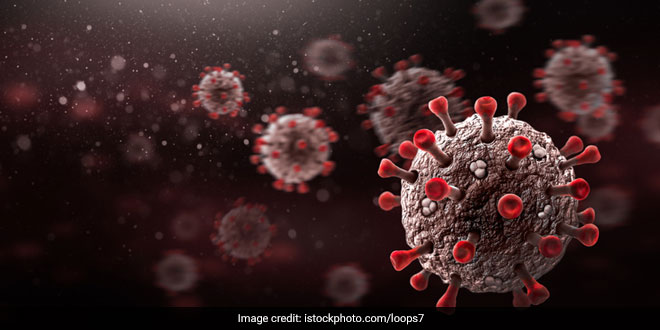Highlights
- Neurological problems increase with more severe cases of COVID-19: Experts
- Neurological problems can persist as an aspect of long COVID also: Experts
- Many cases hospitalised for COVID report symptoms of fuzzy thinking: Study
Boston: Scientists have found signs of inflammation and neurodegeneration in the brains of individuals who died of COVID-19, similar to what is observed in people who die of conditions such as Alzheimer’s and Parkinson’s disease. The findings by researchers at the Stanford School of Medicine, US, and Saarland University in Germany may help explain why many COVID-19 patients report neurological problems. These complaints increase with more severe cases of COVID-19, and can persist as an aspect of “long COVID,” a long-lasting disorder that sometimes arises following infection with SARS-CoV-2, the virus that causes COVID-19.
Also Read: How Has COVID-19 And Lockdown Affected Children, Pregnant Women And Lactating Mothers?
About one-third of individuals hospitalised for COVID-19 report symptoms of fuzzy thinking, forgetfulness, difficulty concentrating and depression, said Tony Wyss-Coray, a professor at Stanford. The researchers could not find any signs of SARS-CoV-2 in brain tissue they obtained from eight individuals who died of the disease. Brain samples from 14 people who died of other causes were used as controls for the study.
The brains of patients who died from severe COVID-19 showed profound molecular markers of inflammation, even though those patients didn’t have any reported clinical signs of neurological impairment, said Mr Wyss-Coray.
The blood-brain barrier consists in part of blood-vessel cells that are tightly stitched together and blob-like abutments created by brain cells’ projections squishing up against the vessels. It has until recently been thought to be exquisitely selective in granting access to cells and molecules produced outside the brain. However, previous work by Mr Wyss-Coray’s group and others has shown that bloodborne factors outside the brain can signal through the blood-brain barrier to ignite inflammatory responses inside the brain.
The latest study, published in the journal Nature, found that activation levels of hundreds of genes in all major cell types in the brain differed in the COVID-19 patients’ brains versus the control group’s brains. Many of these genes are associated with inflammatory processes, the researchers said.
There also were signs of distress in neurons in the cerebral cortex, the brain region that plays a key role in decision-making, memory and mathematical reasoning. These neurons, which are mostly of two types — excitatory and inhibitory — form complex logic circuits that perform those higher brain functions.
The outermost layers of the cerebral cortex of patients who died of COVID-19 showed molecular changes suggesting suppressed signalling by excitatory neurons, along with heightened signalling by inhibitory neurons, which act like brakes on excitatory neurons. This kind of signalling imbalance has been associated with cognitive deficits and neurodegenerative conditions such as Alzheimer’s and Parkinson’s disease, the researchers said.
Viral infection appears to trigger inflammatory responses throughout the body that may cause inflammatory signalling across the blood-brain barrier, which in turn could trip off neuroinflammation in the brain. It is likely that many COVID-19 patients, especially those reporting or exhibiting neurological problems or those who are hospitalised, have these neuroinflammatory markers we saw in the people we looked at who had died from the disease, Mr Wyss-Coray said.
Also Read: ‘Lifeline’ Tech Helps Poor Rural Women Get Through India’s COVID-19 Crisis
(Except for the headline, this story has not been edited by NDTV staff and is published from a syndicated feed.)
NDTV – Dettol Banega Swasth India campaign is an extension of the five-year-old Banega Swachh India initiative helmed by Campaign Ambassador Amitabh Bachchan. It aims to spread awareness about critical health issues facing the country. In wake of the current COVID-19 pandemic, the need for WASH (Water, Sanitation and Hygiene) is reaffirmed as handwashing is one of the ways to prevent Coronavirus infection and other diseases. The campaign highlights the importance of nutrition and healthcare for women and children to prevent maternal and child mortality, fight malnutrition, stunting, wasting, anaemia and disease prevention through vaccines. Importance of programmes like Public Distribution System (PDS), Mid-day Meal Scheme, POSHAN Abhiyan and the role of Aganwadis and ASHA workers are also covered. Only a Swachh or clean India where toilets are used and open defecation free (ODF) status achieved as part of the Swachh Bharat Abhiyan launched by Prime Minister Narendra Modi in 2014, can eradicate diseases like diahorrea and become a Swasth or healthy India. The campaign will continue to cover issues like air pollution, waste management, plastic ban, manual scavenging and sanitation workers and menstrual hygiene.
[corona_data_new]



















